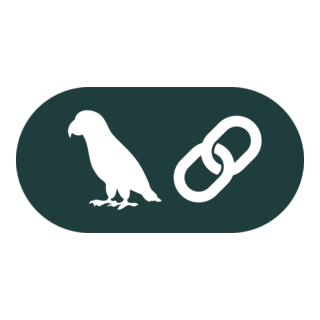
LangChain helps developers ship reliable LLM features faster. Compose prompts, parsers, tools, and retrievers into chains you can test and reuse across projects. Run agents that decide which tools to call, or model flows as graphs for predictable control. Trace behavior, evaluate variants, and deploy endpoints so experiments turn into maintainable services teams can monitor and improve. Docs and templates accelerate onboarding, while examples for common stacks fit existing infra and habits.
Create modular chains that combine template prompts, structured parsers, and tool calls into repeatable steps. Swap components without rewiring everything when specs or models change mid-project. Type-safe inputs and outputs keep contracts clear, and prompt templates render variables consistently across locales and channels. Output parsers validate JSON and schema shapes, retries add fallbacks on malformed responses, and tool adapters hide provider quirks. Examples cover chat, extraction, and classification to standardize patterns.
Build agents that choose tools dynamically, or define deterministic graphs for critical flows. Handle retries, branches, and guards so production routes stay stable while research remains flexible. State containers persist memory between steps, and declarative edges make logic readable in code reviews and design docs. LangGraph models flows as state machines with guarded transitions, human-in-the-loop pauses, and resumable checkpoints for long tasks. Timeouts and concurrency limits protect backends, and diagrams explain paths clearly.
Load documents from file systems, cloud storage, and APIs; chunk and embed text; and query vector stores with hybrid retrievers. Ground answers in sources for citations and better factuality that stakeholders can verify later. Pipelines support filters, rerankers, and metadata routing so results stay relevant, reducing hallucinations in sensitive workflows. Loaders handle PDFs, HTML, slides, and code; caching speeds hot queries; and multi-vector retrievers blend keyword and semantic recall. Chunkers preserve headings for faithful cites.
Capture traces, spans, and inputs to compare prompts, models, and parameters over time. Run offline evals on datasets and track quality, cost, and latency together so tradeoffs are explicit. Regression checks prevent silent degradations, and feedback signals become training labels for ongoing improvement. LangSmith stores traces and datasets, collects feedback via APIs, and runs evals for faithfulness, toxicity, and task success. Comparisons quantify cost versus quality, and canary checks catch regressions before wide release.
Expose chains as APIs, schedule jobs, or run serverless for scale. Adapters connect to vector databases, orchestration tools, and secret stores so ops stays simple as traffic grows. CI examples and reference projects shorten ramp-up, and dependency pins keep environments reproducible across teams and regions. LangServe exposes routes with streaming events; secrets integrate with cloud vaults; deploy templates target major clouds. End-to-end tests validate critical paths, and adapters evolve without rewriting core logic.


Recommended for product teams and platform engineers turning prototypes into stable features. LangChain standardizes patterns like tool use, RAG, and evals so new projects start from proven building blocks. Stakeholders see traceable behavior, and teams share components confidently across services without reinventing the same glue each sprint. Reusable components align approaches and reduce review time across initiatives, keeping momentum high while code stays clear and auditable for long-term maintenance.
LLM projects often sprawl into custom glue code that’s hard to test and impossible to reuse. LangChain provides composable primitives, observability, and deployment paths that reduce risk as features scale. The outcome is faster iteration, clearer quality signals, and services that evolve safely instead of breaking whenever models or requirements shift. By aligning code, data, and evaluation, organizations focus on product value rather than stitching libraries together repeatedly.
Visit their website to learn more about our product.


Grammarly is an AI-powered writing assistant that helps improve grammar, spelling, punctuation, and style in text.

Notion is an all-in-one workspace and AI-powered note-taking app that helps users create, manage, and collaborate on various types of content.
0 Opinions & Reviews